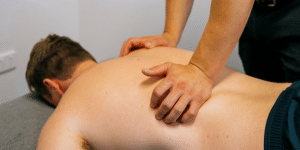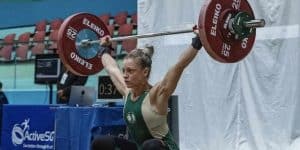How long will it take to become an Olympic athlete?

Did you watch any of the Olympics? Pretty much everyone on the screen is an absolute outlier in terms of their strength, flexibility, endurance, coordination, balance or power. In most cases, they combine those 6 attributes to perform in their chosen sport. But are these people born or made? This month we take a brief look at what separates an Olympic athlete from the rest of us.
The argument for practice: Is it as simple as practicing for 10,000 hours?
“Practice isn’t the thing you do once you’re good. It’s the thing you do that makes you good.” The book “Outliers: The Story of Success” by Malcolm Gladwell explores factors that contributed to high achievement by individuals in business, sports, music and more. Throughout his book, Gladwell repeatedly refers to the “10,000-hour rule,” asserting that the key to achieving true expertise in any skill is simply a matter of practicing, albeit in the correct way, for at least 10,000 hours. To put it in perspective, if you practiced a skill for 40 hours a week, every week, it’d take you 5 years to hit the magical 10k.
But is this really the case?
It’s easy to think so when people like Tiger Woods in golf and the Williams sisters in tennis come to mind – trained from a very young age, they kept practising and reached the pinnacle of their sports. So, does this mean we (or our kids!) all have the same potential inside, just waiting to be unlocked?
Unfortunately, the answer is probably a firm ‘no’. Freakish levels of performance are influenced by practice, but you’ve likely got to have an underlying level of genetically determined ability to make it. In his book, “The Sports Gene”, David Epstein asks us to consider elite performance using the analogy of a computer system. The best, fastest computers have top-shelf hardware and are loaded with the highest-spec software. In human performance, the hardware (stuff we can’t change) is our genetics, while the software (we can change and update whenever we want) is the practice. To look at it another way, to be elite, Epstein says you need nature and nurture both covered.
So I’m limited by my genetics ☹. How can I make it to the top?
Take a glass half-full view and see yourself as enabled by your genetics! We all have different strengths, and it’s surprising how different traits lend themselves to success. For example:
| Sport | Trait |
|---|---|
| Basketball | Height and arm span |
| Batting / hitting in cricket, baseball, softball, and so on | Eyesight (not reaction time!) |
| Gymnastics and diving | Lower than average height (taller people can’t match the rotational performance of their shorter brethren), flexibility, power. |
| Swimming | Height, arm span, higher-than-required-for-athletics bodyfat (if you’re pure muscle, you’ll sink, not swim!) |
| Rowing | Height, arm length, leg length, aerobic capacity |
| Sprinting | High % fast-twitch muscle fibres, reaction time – favours West African genes |
| Long-distance running | High % slow-twitch fibres, aerobic capacity, low fat mass – favours East African genes |
| Tennis | Eyesight (again), agility, leg power |
This is by no means an exhaustive list; some traits are more ‘essential’ than others, and a strong expression of one desirable characteristic can offset a weaker expression of another. But the take home message remains; reaching the elite level is invariably a matter of having both the nature and nurture bases covered.
(and yes, there is a pattern – overall, being tall tends to help more than it hurts!)






